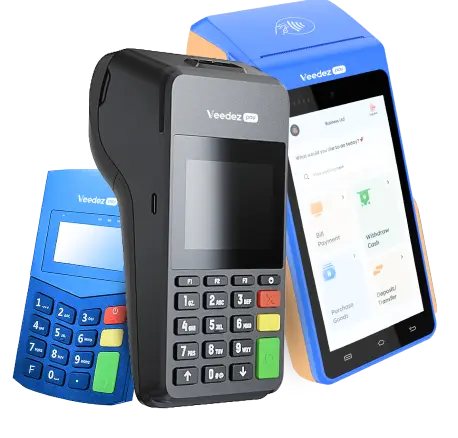POS Machine – Complete Guide to Working, Types & Benefits
In the world of modern business, a POS machine (Point of Sale machine) is one of the most essential tools. Whether you run a retail store, a café, or an online business with a physical outlet, a POS machine helps you manage payments, sales, and inventory efficiently.
This compact device has transformed the way businesses handle transactions — replacing manual billing systems with faster, smarter, and more accurate digital solutions. Let’s explore what a POS machine is, how it works, its types, and why it’s a must-have for every business today.
What Is a POS Machine?
A POS machine, also known as a point-of-sale terminal, is an electronic device used to process payments made by customers at the time of purchase. It connects with payment networks, allowing businesses to accept debit cards, credit cards, and even mobile wallet payments like Apple Pay or Google Pay.
Apart from payment processing, modern POS machines are integrated with software that tracks sales, manages inventory, and generates digital receipts. In short, it’s not just a payment device — it’s a complete business management tool.
How Does a POS Machine Work?
The process of using a POS machine is simple, smooth, and efficient. Here’s how it works step-by-step:
-
Transaction Initiation:
-
When a customer is ready to pay, the merchant enters the payable amount on the POS terminal.
-
Card or Wallet Authentication:
-
The customer taps, inserts, or swipes their card, or uses a mobile wallet to make a payment.
-
Authorization:
-
The POS machine connects to the bank’s server or payment gateway to verify the transaction details.
-
Approval or Decline:
-
Once verified, the bank approves the transaction, and the amount is deducted from the customer’s account.
-
Receipt Generation:
-
A printed or digital receipt is generated, and the payment is credited to the merchant’s account.
This entire process usually takes just a few seconds, ensuring convenience for both the customer and the business.
Types of POS Machines
Different businesses have different needs — and POS machines come in several types to match them.
1. Traditional POS Machine
These are wired devices commonly used in retail stores, restaurants, and supermarkets. They require a direct connection to a power source and telephone or internet line.
2. Wireless POS Machine
Wireless or mobile POS machines use Wi-Fi or SIM-based connectivity. They are portable and ideal for businesses that offer doorstep or table-side payments, such as delivery services and restaurants.
3. Android POS Machine
These are smart POS systems powered by Android OS. They include advanced features like touchscreen display, barcode scanning, and custom apps for billing and reporting.
4. Virtual POS or Online POS
Used by e-commerce or digital stores, a virtual POS system allows businesses to accept payments online through payment gateways and virtual terminals.
5. Self-Service POS Kiosks
Found in supermarkets, airports, and cinemas, these POS kiosks allow customers to scan items, make payments, and receive receipts without staff assistance.
Related more articles, pos software pakistan
Benefits of Using a POS Machine
Adopting a POS machine provides countless benefits for both small and large businesses.
1. Faster Transactions
POS machines allow businesses to handle payments quickly, reducing waiting time and improving customer satisfaction.
2. Accuracy and Transparency
They minimize human errors during billing and ensure all transactions are recorded accurately.
3. Multiple Payment Options
Customers can pay through debit/credit cards, QR codes, or digital wallets — offering flexibility and convenience.
4. Improved Business Management
Advanced POS systems come with integrated software that tracks inventory, monitors sales, and generates daily reports.
5. Secure Payments
POS transactions are encrypted, protecting sensitive customer information and reducing fraud risks.
6. Better Customer Experience
Smooth checkout processes and instant receipts make customers feel valued and confident.
Where Are POS Machines Commonly Used?
POS machines are used across a wide range of industries:
-
Retail Stores: For quick and easy billing.
-
Restaurants & Cafés: To manage orders, bills, and table payments.
-
Supermarkets: For faster checkout and stock tracking.
-
Salons & Clinics: To handle both appointments and payments.
-
Hotels & Travel Agencies: To process room bookings and travel payments.
-
E-commerce Stores: Through virtual POS terminals for online transactions.
Tips for Choosing the Right POS Machine
Selecting the right POS machine can make a big difference for your business. Consider these points before purchasing:
-
Ensure it supports multiple payment modes (cards, QR, wallets).
-
Check for integration options with accounting or inventory software.
-
Choose a model with secure encryption and fast processing.
-
Go for devices that offer technical support and software updates.
-
Consider portable or wireless options if mobility is needed.
Conclusion
In today’s digital economy, a POS machine is no longer optional — it’s a necessity for any business that wants to stay competitive and efficient. From small retail outlets to large chains, POS systems simplify payment processing, boost customer satisfaction, and help businesses manage operations smartly.
By investing in the right POS machine, you not only modernize your payment system but also lay the foundation for a more organized, data-driven, and customer-friendly business environment.



